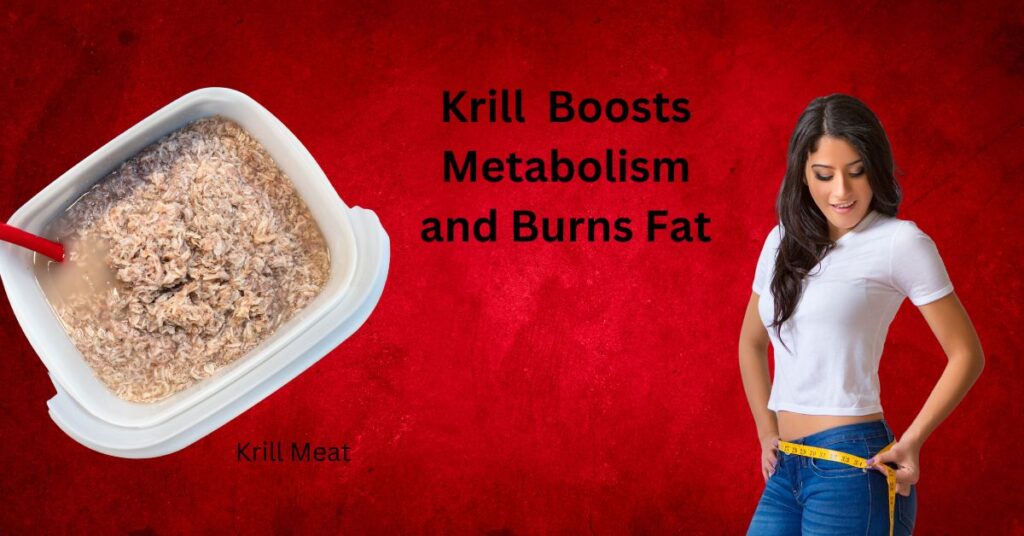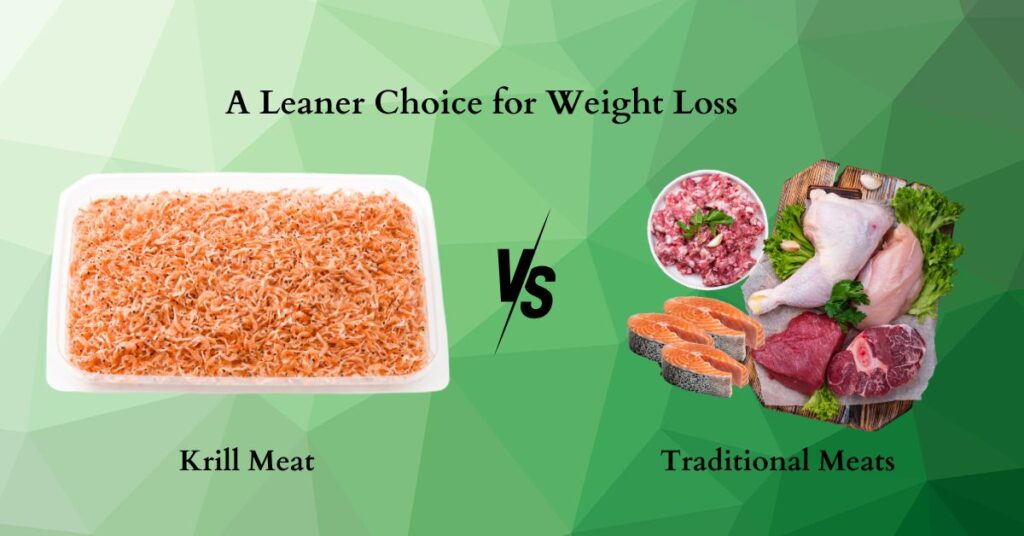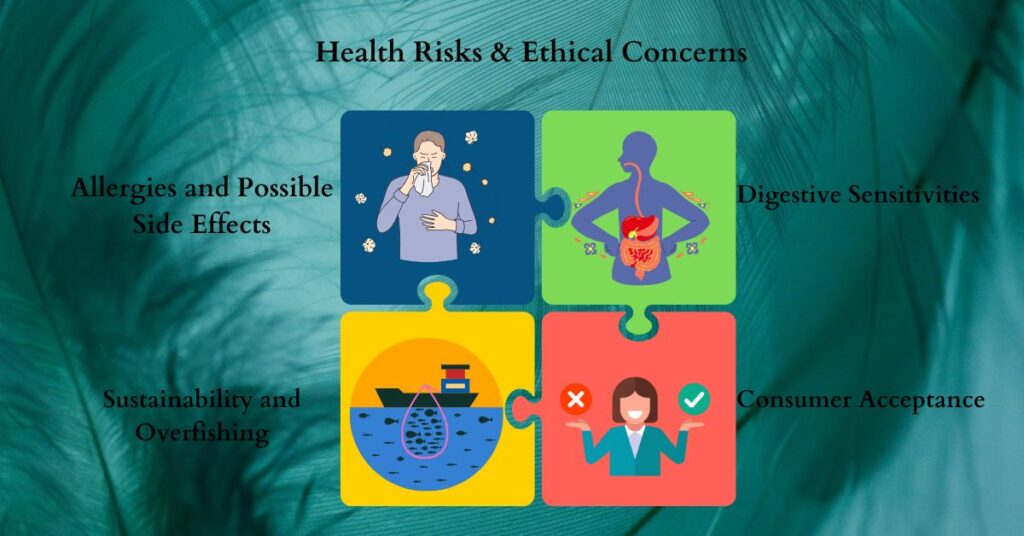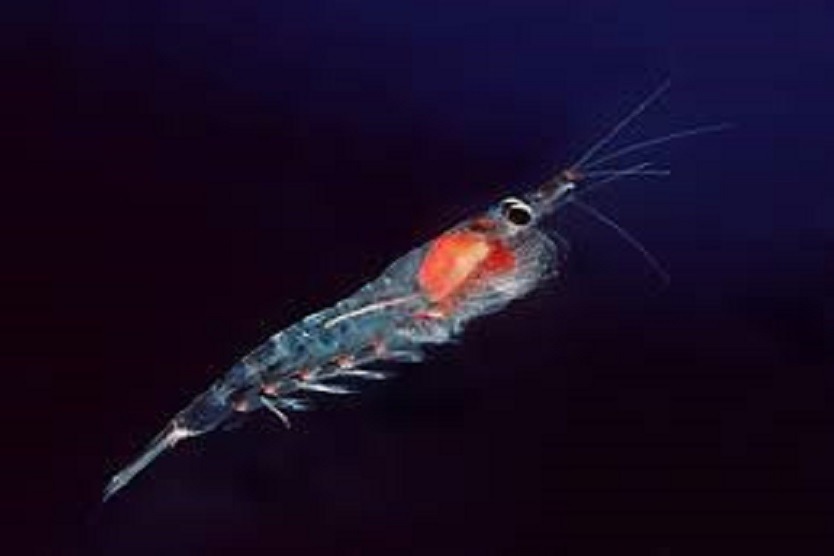Krill is quickly gaining recognition as a powerful, nutrient-packed superfood that could play a key role in weight loss. As a protein source, it offers a unique combination of high-quality protein, omega-3 fatty acids, and antioxidants, making it an excellent addition to any weight loss plan. What sets krill apart is its ability to help reduce fat storage, improve metabolism, and keep you feeling fuller for longer helping you stay on track with your weight loss goals.
Now, imagine swapping out a calorie-heavy snack for a serving of krill meat. Not only are you satisfying your hunger, but you’re also fueling your body with clean, sustainable protein that works in harmony with your metabolism without the extra calories. With krill meat, weight loss doesn’t have to mean extremes or deprivation. It’s about making smarter, nourishing choices that support your body’s natural processes.
So, let’s dive deeper into how krill meat can be the game-changer you need in your weight loss journey, and why more people are turning to it for healthy, lasting results.
Krill and Weight Loss: Can It Help?
Yes, it can.

When it comes to shedding excess weight, diet is one of the most important factors. While many turn to lean meats like chicken and fish, krill meat is quickly emerging as a superior alternative. Packed with high-quality protein, low in calories, and loaded with powerful nutrients, krill meat is a game-changer in the world of weight loss. Let’s take a closer look at how krill meat can support both your weight loss goals and overall health.
Lean Protein for Satiety and Fat Loss
Protein plays a crucial role in managing your weight, and krill meat is a fantastic source of lean protein. Here’s how it helps:
- Keeps You Full Longer – Krill protein promotes a feeling of fullness, reducing the urge to snack between meals and helping you control your calorie intake.
- Boosts Metabolism – The thermic effect of protein is higher than that of carbs or fats, meaning your body burns more calories digesting krill meat. This boosts your energy expenditure and supports fat loss.
- Preserve Lean Muscle Mass – Losing fat while keeping muscle is key. Krill meat’s essential amino acids promote muscle repair and growth, ensuring that your weight loss comes from fat, not muscle.
Low-Calorie, High-Nutrient Profile
Unlike some traditional meats, krill meat is naturally low in calories and fat while still providing essential nutrients.
- Fewer Calories, More Nutrients – Krill meat delivers maximum nutrition without the calorie overload found in meats like beef or pork, making it a perfect choice for weight loss diets.
- Packed with Vitamins & Minerals – Rich in iodine, selenium, and B vitamins, krill meat supports thyroid function and energy metabolism both vital for healthy weight management.
Omega-3 Fatty Acids and Fat Metabolism
What truly sets krill meat apart is its omega-3 content, which plays a major role in fat metabolism and overall weight loss.
- Enhances Fat Oxidation – Omega-3s improve your body’s ability to burn fat for energy, which helps make weight loss easier and more sustainable.
- Supports Energy Balance – Omega-3s help regulate appetite, balance blood sugar levels, and prevent fat storage, keeping your metabolism in check.
Inflammation and Weight Management
Chronic inflammation often goes hand-in-hand with obesity and metabolic disorders. The antioxidants and omega-3s in krill meat work in tandem to reduce inflammation and support a healthy metabolism.
- Astaxanthin: A Natural Anti-Inflammatory – This powerful antioxidant in krill helps combat inflammation-related weight gain and improves overall metabolic function.
- Reduces the Risk of Obesity-Related Diseases – By lowering inflammation, krill meat may also help prevent serious health issues like insulin resistance, heart disease, and metabolic syndrome.
Krill Meat vs. Traditional Meats for Weight Loss
Now, let’s compare krill meat to common meat sources and see why it stands out as an optimal choice for weight loss.

Calorie and Fat Comparison
- Krill meat is lower in fat and calories than beef, pork, and even some types of fish.
- It provides lean protein without the added saturated fat, which can be harmful to heart health when consumed in excess.
| Meat Type | Calories (per 100g) | Protein (g) | Fat (g) |
| Krill Meat | ~90 | ~20 | ~2 |
| Chicken Breast | ~165 | ~31 | ~3.6 |
| Beef (Lean) | ~250 | ~26 | ~15 |
| Salmon | ~208 | ~20 | ~13 |
Sustainability Factor
- Krill harvesting is considered more sustainable than traditional meat production, which requires significant land, water, and feed resources.
- Overfishing and livestock farming contribute to environmental degradation, whereas krill is abundant in the ocean and can be harvested responsibly.
Unique Nutritional Advantages
Unlike traditional meats, krill meat is:
- Rich in omega-3 fatty acids, which support weight loss, heart health, and brain function.
- Packed with astaxanthin, a powerful antioxidant missing from most meats.
- Easier to digest compared to red meats, making it a gentle option for the stomach.
Potential Risks and Ethical Considerations
While krill meat offers numerous health benefits, it’s important to consider potential risks, ethical concerns, and practical challenges before adding it to your diet. From allergy risks to environmental sustainability and consumer acceptance, let’s explore the key factors to keep in mind when choosing krill meat as a dietary option.

Allergies and Possible Side Effects
As with any food, krill meat may pose some risks, particularly for those with allergies or sensitivities. Here are the most important things to keep in mind:
Shellfish Allergies
Krill belongs to the crustacean family, which includes shrimp, lobster, and crab. People who have shellfish allergies should be cautious, as they could experience allergic reactions ranging from mild symptoms like itching to severe ones like anaphylaxis.
- Recommendation: If you have a shellfish allergy, it’s best to avoid krill meat altogether. If you’re unsure about your sensitivity, consult your doctor before trying it.
Digestive Sensitivities
While krill meat is nutrient-dense, some individuals may experience mild digestive discomfort such as bloating or an upset stomach, especially when first introducing it into their diet.
- Recommendation: If you’re new to krill, try starting with small portions and gradually increasing your intake to allow your digestive system to adjust.
Interactions with Medications
Krill is rich in omega-3 fatty acids, which are known to have a natural blood-thinning effect. If you are currently taking blood thinners or anticoagulants, adding krill meat to your diet could interfere with your medication’s effectiveness.
- Recommendation: Speak to your healthcare provider before adding krill to your diet, particularly if you are on blood-thinning medications, to ensure it’s safe for you.
Ethical and Environmental Considerations
While krill meat provides many health benefits, there are also ethical concerns surrounding its sourcing.
Sustainability and Overfishing
Krill play an important role in the marine food chain, serving as the primary food source for many sea creatures. Some concerns that increased krill harvesting could lead to overfishing, threatening marine ecosystems.
- Recommendation: Choose krill meat from companies that prioritize sustainable fishing practices, ensuring that the krill is sourced responsibly without negatively impacting the environment.
Consumer Acceptance
Although krill meat is gaining popularity, it is still a relatively new protein source for many consumers. Some may be hesitant due to its unfamiliarity, taste, or texture.
- Recommendation: If you’re considering krill meat, be open to experimenting with different preparations to find how you like it best. Understanding its nutritional benefits can help overcome initial skepticism.
Conclusion:
Krill meat offers a unique and powerful way to support your weight loss journey. Packed with high-quality protein, omega-3s, and antioxidants, it helps boost metabolism, reduce fat storage, and keep you feeling fuller longer. Unlike many traditional protein sources, krill meat provides these benefits without the extra calories or unhealthy fats, making it a smart choice for sustainable weight management.
While krill meat offers a range of health benefits, it’s important to be mindful of potential risks like allergies and sustainability concerns. Being thoughtful about sourcing and considering individual health needs ensures it can be a beneficial addition to your diet.
Ultimately, krill meat is a great tool for those looking to make healthier, long-term choices. When combined with a balanced diet and regular exercise, it can support weight loss and overall well-being while contributing to environmental sustainability.








